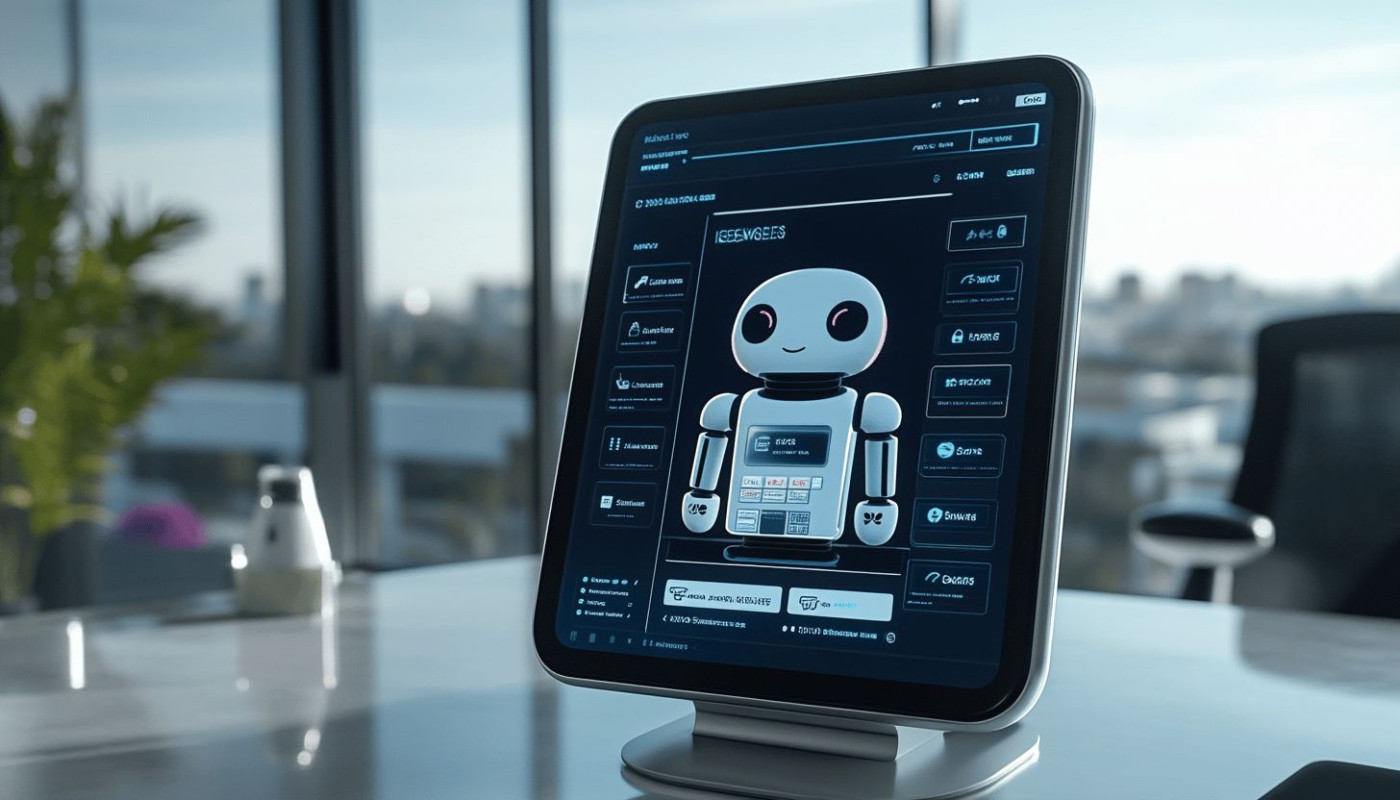Table of contents
Imagine having a digital companion tailored precisely to your unique needs, ready to assist, converse, and support you throughout your daily routine. As technology advances, creating a personalized AI for genuine daily interaction is no longer a distant dream but an achievable reality. Explore the foundational steps and advanced strategies to bring your ideal AI assistant to life, and unlock a world of seamless, intuitive communication. The following sections reveal how to craft an AI companion that truly understands and evolves with you.
Choosing the right interaction style
When crafting your ideal AI companion for daily interaction, selecting the most suitable interaction style is key to maximizing comfort and productivity. Several communication modes exist, each offering unique advantages. A voice assistant provides hands-free convenience and simulates human-AI communication that feels organic, thanks to advancements in natural language processing (NLP). This method is ideal for multitasking or for users who prioritize accessibility. In contrast, a chatbot interface utilizes text-based exchanges, which are favored by those who prefer clarity, privacy, or environments where speaking aloud is impractical. Multimodal interfaces, combining both voice and text, further enrich conversational AI experiences by adapting to the user's changing context and needs.
Choosing the correct interaction style requires understanding personal habits and the environment in which the AI companion will be used. Voice assistants excel in scenarios demanding quick, on-the-go responses but may raise concerns about privacy or noise. Text-based chatbot interfaces are suitable for more detailed or sensitive discussions, offering users time to consider responses. Multimodal solutions bridge the gap, enabling seamless transitions between voice and text, thus supporting a wider range of daily tasks and preferences.
Selecting an interaction style also means balancing naturalness and efficiency. While natural language processing (NLP) allows conversational AI to mimic human dialogue and anticipate intent, not every situation demands full human-like interaction. For some, concise, efficient exchanges are preferable, especially during repetitive or routine commands. For others, a richer, context-aware dialogue enhances engagement and satisfaction. Matching the communication mode to your expectations and environment ensures that your AI companion remains both a practical tool and a natural part of daily life.
Customizing personality and tone
Defining the personality traits and tone of your AI companion requires a thoughtful approach that blends both technical precision and psychological insight. Begin by mapping out desired characteristics such as warmth, humor, formality, or assertiveness, aligning them with the target audience’s expectations and interaction goals. Utilizing frameworks like the Big Five personality model or OCEAN, developers can systematically encode these traits, allowing the AI personality to express itself consistently. Tone of voice adjustments—whether enthusiastic, empathetic, or neutral—are accomplished through natural language processing models fine-tuned on curated conversational datasets. Emotional intelligence becomes a vital layer here, enabling the AI to recognize, interpret, and adapt to user emotions in real-time. This is where computational empathy comes into play: advanced algorithms analyze user sentiment and context to generate responses that feel genuinely supportive or engaging. Practical customization of personality and tone directly boosts user engagement and satisfaction, as users are more likely to return to an AI companion that mirrors their communication style or offers meaningful, emotionally resonant exchanges. As illustrated by leading AI personality design research, a relatable and adaptable AI personality is a defining factor in fostering long-term user retention and cultivating authentic daily interactions.
Ensuring privacy and security
Safeguarding user information stands as a cornerstone in the development of any secure digital assistant, with AI privacy and data security forming the foundation for user trust. When building an AI companion, ethical AI practices demand that every interaction be protected against unauthorized access and misuse. End-to-end encryption is a technical necessity, ensuring that data exchanged between the user and the assistant remains confidential throughout transmission and storage. User consent should be transparently obtained and managed, giving individuals clear control over what personal data is collected, stored, and processed. Customizing privacy settings to align with unique user needs and regularly updating security protocols according to industry standards are practical steps that foster compliance with global regulations. In sum, integrating robust technical safeguards with transparent communication about data handling practices nurtures confidence and assures users that their interactions with AI remain private and secure.
Continuously improving your companion
Ongoing AI improvement relies on establishing a robust feedback loop, where user interactions and preferences are routinely collected and analyzed through user analytics. By monitoring daily engagement patterns and specific user inputs, adaptive AI systems can employ reinforcement learning to refine responses, personalize recommendations, and anticipate needs more accurately. Incorporating regular AI updates, based on both explicit feedback and observed behaviors, allows for the dynamic adjustment of features and conversational styles to better match shifting user expectations. This iterative approach ensures that the AI companion remains relevant, intuitive, and closely aligned with the unique habits and desires of each individual over time.
Defining your AI’s purpose
Before embarking on AI companion design, it is vital to clearly determine the primary roles your digital assistant will play in daily interaction. Begin by analyzing your user needs: consider whether your AI should focus on productivity tasks, offer reminders, manage your schedule, or provide emotional support and companionship. This assessment is central to personalized AI development, as it ensures the digital assistant aligns with your lifestyle. Tools such as journaling your routines, rating daily challenges, and using surveys can offer insight, while advanced strategies like user intent modeling help map out desired interactions in greater detail. Setting explicit, actionable goals early on directly shapes how the AI behaves and responds, making the experience truly tailored.
Clarity in these initial decisions allows the creation of a digital assistant that genuinely enhances daily interaction and adapts over time. As a leading user experience strategist would emphasize, the blend of user needs and technical planning forms the backbone of successful AI companion design. Exploring platforms such as OurDreamAI can provide valuable inspiration and practical examples, showcasing how thoughtful purpose definition translates into everyday utility and user satisfaction.
Similar articles

Tailoring Education To Individual Needs With AI Assistants

Enhancing Customer Service With AI Assistant Innovations

How AI Assistants Are Shaping The Future Of Remote Work

Streamlining Your Workflow With Efficient Strategies For Kubernetes Upgrade Deployment

Streamlining Your Business With Efficient Kubernetes Cluster Upgrades

How To Choose The Best Mobile Booster For Office Efficiency?

Best Practices For A Seamless Kubernetes Cluster Upgrade

Ensuring Business Continuity During A Kubernetes Cluster Upgrade

How Does An ESIM Simplify Your Mobile Data Needs While Traveling In Europe?

How Small Businesses Can Leverage A Chatbot Builder To Improve Customer Service

How Small Businesses Can Benefit From Using A Chatbot Builder

Exploring The Impact Of Jurisdiction Choice On Crypto Licensing Success

How To Choose The Right Chatbot Builder For Your Business Needs

How Choosing The Right Chatbot Builder Enhances Customer Service

Exploring The Impact Of UX Design On Chatbot Effectiveness

Advancing AI Prompt Design For Enhanced Creative Outputs

Exploring The Future Of Multi-channel Chatbots In Customer Service

The Evolution And Future Of Conversational AI In Customer Service

How To Build A Chatbot Without Coding Skills In Under 10 Minutes

Understanding The Emotional Stages Of Breakup And How To Navigate Them

How AI-driven Chat Platforms Revolutionize Customer Interactions

Exploring The Future: How Free AI Tools Are Shaping Industries

How Integrating Chatbots Can Transform Customer Service Efficiency

Enhancing Customer Engagement With Advanced QR Code Features

Step-by-step Guide To Diagnosing Connectivity Issues With Online AI Tools

